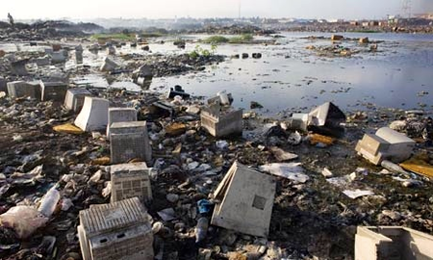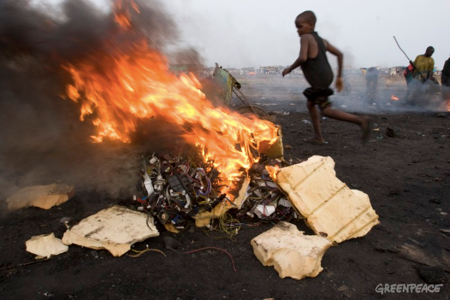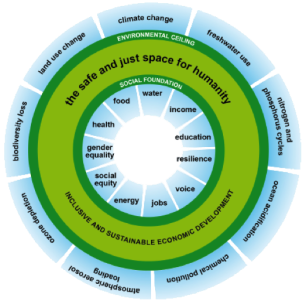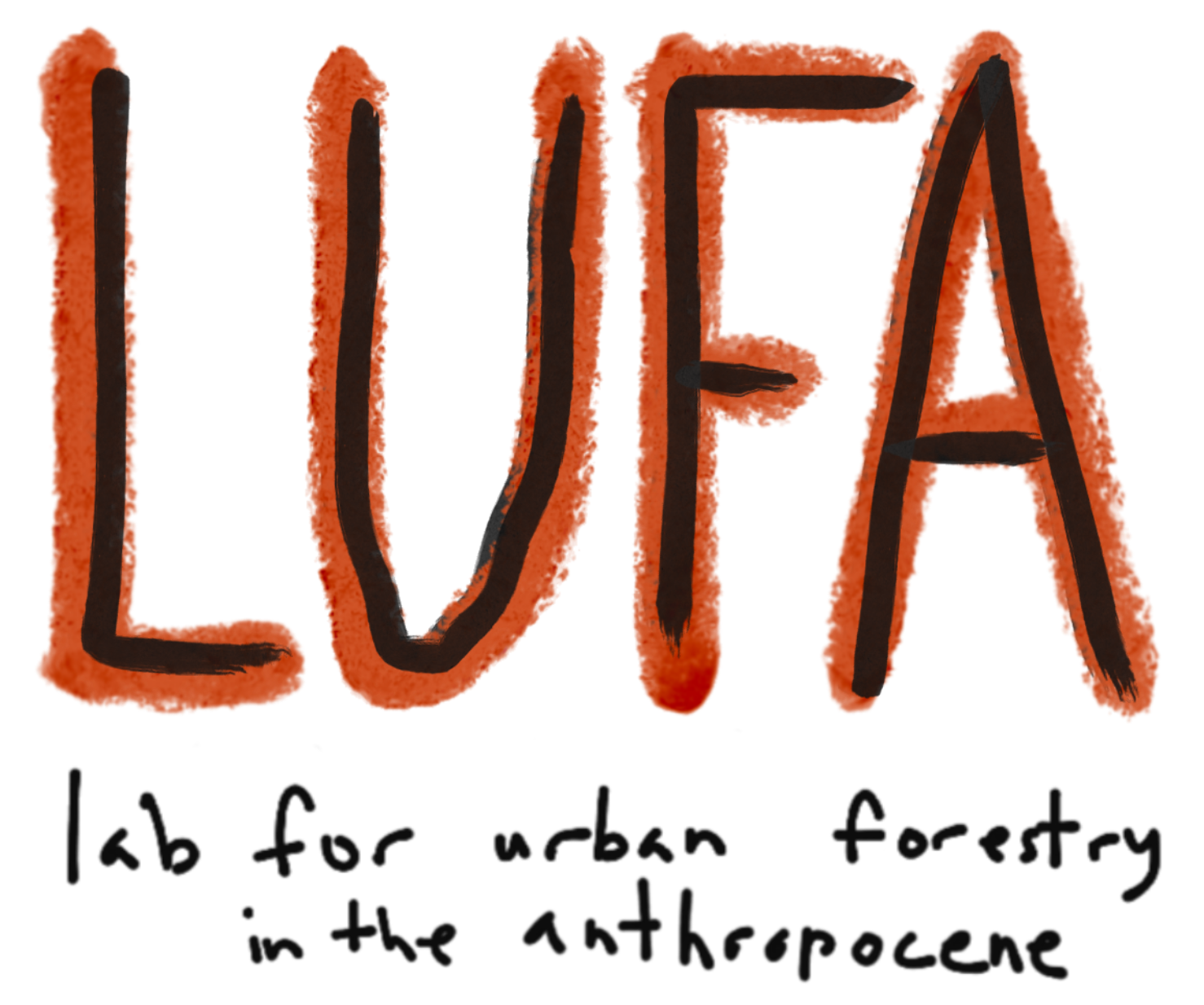BY Dan PossleyWhat is e-waste? Electronic waste or e-waste, is the discarding of electronic technology. If this waste isn’t salvaged, reused, or recycled, its disposal can lead to toxic chemicals being released into the environment. However, even though most e-waste can be recycled, only ~12.5% is, which is problematic since 70% of toxic waste in landfills is attributed to e-waste. Currently, the world's most developed nations, the U.S. and Europe topping the list, are responsible for producing the most e-waste in the world, ranging from 20-30 million tons a year.  Toxic chemicals from e-waste leak into waterways. (Image source: Sustainability & Environmental Justice) Toxic chemicals from e-waste leak into waterways. (Image source: Sustainability & Environmental Justice) Toxic chemicals are found in e-waste that is either incinerated or tossed into landfills. These often dangerious chemicals leak into the soil and water, as seen at left, and through incineration are released into the atmosphere. E-waste burning is not seen in wealthy, developed countries due to regulations. Instead, e-waste is sent to poor counties like Ghana (image below) where acids are used to dissolve and burn e-waste. Those working in these unregulated conditions in poor countries are exposed to harmful chemicals and pollutants that harm their health.  Burning e-waste in Ghana. (Image credit: Greenpeace) Burning e-waste in Ghana. (Image credit: Greenpeace) Since poor nations don’t have the technological advances that we in the United States do, their contribution to e-waste is minimal compared to wealthy nations like the United States and Europe. However, they are the ones having their health and wellbeing threatened by these wealthy nations through the exportation of their e-waste to their backyard. (This is about to change, conversely, it is projected that within the next decade China, Eastern Europe, and Latin America will be the major e-waste producers in the world, revealing the need for a solution to e-waste now to avoid more being added in the future.)  The "doughnut model" of sustainability. (Image credit: Kate Raworth) The "doughnut model" of sustainability. (Image credit: Kate Raworth) E-Waste and the Doughnut Model The “Doughnut Model” of sustainability (shown at right) proposes that in order to create a "safe and just space" for humans on Earth, we should consider not only the impact of human activities on the environment but also the "social foudations" human communities require to survive. Both the planetary boundaries and social foundations are negatively impacted by e-waste. Not only are the workers who are handling and burning e-waste effected by toxic contaminants, but those in the area are also effected by the dust and smoke produced. E-waste is a main contributor to groundwater pollution, these pollutants include toxins like mercury and lead, which can be present in well water and other water sources taken from below the surface of the Earth. This type of pollution is also present in the United States; however, unlike poorer foreign nations, it is required by the Environmental Protection Agency that these contaminated sites be cleaned, even though it is a lengthy and expensive this process can be. Which reveals the difficulties that a poorer nation may face in regards to treating these contaminated freshwater sites given the financial needs. To summarize, the e-waste imported to developing countries like Ghana from the United States has a multitude of impacts. Environmental pollution and human health and wellbeing are both impacted by the burning and discarding of e-waste from America and sending our problems to other nations. This cycle has to end. How can we make that happen? Ending the cycle
This is relatively simple: We Americans need to change the way we consume electronic goods. We need to turn to reusing technology and not buying a new phone every year. We need to change the way we consume goods, fix broken technology instead of tossing it for a new one. Lobby government and encourage recycling e-waste by taking these valuable resources and using them in new technology instead of exploiting poor nations and using them as our dumping grounds. The next time your technology breaks consider the impact that just throwing it away could have, and try to have it repaired instead of replaced.
0 Comments
Your comment will be posted after it is approved.
Leave a Reply. |
AuthorsStudents in Jess' ENV 151 Introduction to Sustainability write blog posts on a sustainability-related topic of their choice. ArchivesCategories
All
|
1110 West Belden Avenue Chicago Illinois 60614
|
Site last updated: August 9, 2018.


